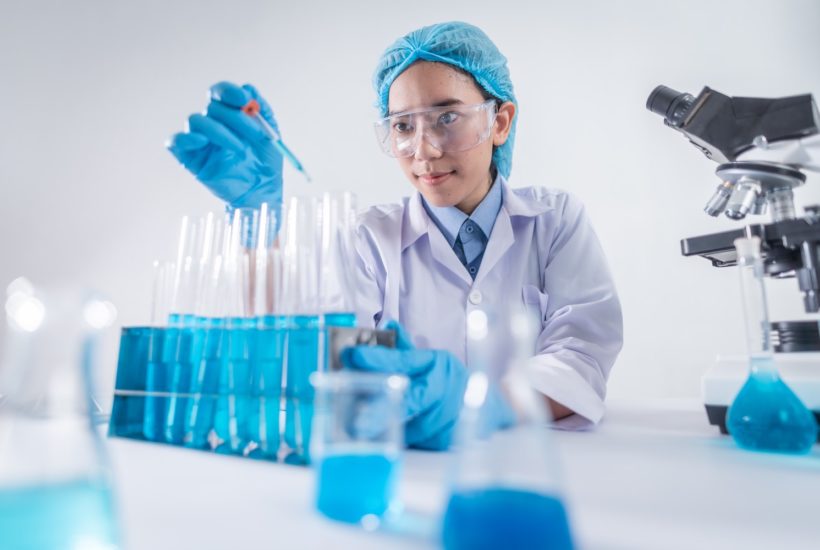Biotech
Almost 700 companies and over 12 billion in turnover for the Italian biotech sector
The new Assobiotec – Enea report showed an industrial sector that registered an increase of all the economic indicators. There are about 700 biotech companies in Italy. The total R&D investments of the surveyed companies amounted to $2.5 billion (€2.3 billion) while investments in biotech R&D exceeded $826 million (€760 million). About 13,000 Italians work in the biotech sector.

From “BioInItaly Report 2020 – Biotechnology companies in Italy. Facts & Figures” and the survey “Biotech vs Covid-19” presented by Federchimica AssoBiotec and Enea, resulted that at the end of 2019 there were 696 active biotech companies in Italy.
A picture that “shows a growing sector, with a population of companies that has been consolidating in numerical terms, with a high intensity of research and development, but that needs to strengthen in terms of size to improve its competitiveness at international level.”
If you want to find out more details about the importance of the biotech companies in the fight against COVID-19 pandemic and to read more details about the biotech sector in Italy, download the Born2Invest mobile app. Discover the latest business headlines in the world with our companion app.
About 700 biotech companies in Italy
AssoBiotec and Enea underlined that this is “a sector that in these first months of 2020 has shown all its value and potential in the response to the health emergency caused by the spread of Sars-Cov2. And that is increasingly establishing itself as a key technology for a “sustainable” restart of the country.”
The report also stated that: “In fact, a key driver of the bio-economy, biotechnologies applied to agriculture offer a concrete response to manage the reduced availability of soil and water, to preserve biodiversity, to make production resistant to climate change. As well as bioproducts and bioprocesses are great opportunities for the future of the planet because they have a very low environmental impact and represent a concrete path towards the decarbonization of the economy and the reduction of dependence on fossil sources.”
The Italian biotech sector registered an impressive turnover in 2019
The new Assobiotec – Enea report showed an industrial sector that registered an increase of all the main economic indicators and with a number of companies that is stable around 700 units:
“At the end of 2019 the total biotech turnover exceeded $13 billion (€12 billion) with an average annual increase between 2014 and 2018 of about 5%. Two-thirds of the biotech turnover is generated by foreign-owned companies, which account for just 11% of the surveyed companies.
There are over 13,000 biotech employees in Italy, 34% of whom are employed in R&D activities. The total R&D investments of the surveyed companies amounted to $2.5 billion (€2.3 billion) while investments in biotech R&D exceeded $826 million (€760 million). The latter showed a growth of more than 7% compared to 2016 and 25% compared to 2014. 80% of the biotech industry in Italy is made up of small and micro companies, which have played a driving role in the growth dynamics of the entire sector. Between 2017 and 2019, more than 50 new innovative start-up companies active in biotechnology were registered. 49% of the biotech companies have health as their main sector of application, which historically has been the sector that first gave a boost to the development of biotech technologies. 39% of biotech companies produce and/or develop products and services both for industrial applications (30%) and for agricultural and livestock applications (9%), representing one of the main innovative levers for the bioeconomy sectors. The area of applications in Genomics, Proteomics and Enabling Technologies – GPTA is present in 12% of the surveyed realities.”
A conglomeration of biotech companies in Lombardy
Biotechnology activities are confirmed to be strongly concentrated in Lombardy, the first region in Italy in terms of number of companies (195 equal to 28% of the total), investments in intra-muros R&D (30% of the total) and biotech turnover (45% of the total). However, there is a progressive development of the North-East regions and a growing diffusion of new initiatives in the Central (with Lazio in the lead) and Southern regions.
Particularly significant was the growth of the share of the South, even if only in terms of the number of companies: the share of biotech companies based in the South increased from 14.4% in 2008 to 19.4% in 2019. The region Campania is driving this development.
According to President Enea Federico Testa, “From the Biotechnology Report it emerges strongly how research and innovation can make an important contribution to the development of strategic sectors, in a perspective of economic and environmental sustainability and public-private collaboration. In order to make the most of the potential of our innovative system, in fact, it is necessary to develop new ways of collaboration between public research, companies and financiers, first of all venture capital funds, in order to maximize the opportunities for technological exchange in an open innovation approach, to strengthen the system action between the various actors involved. For some years now, ENEA has been positioned on this trajectory with ad hoc instruments to strengthen collaboration with companies, through programs such as the Knowledge Exchange to support the industrial system, the internal $2.7 million (€2.5 million) fund for proof of concept, and the training of experienced researchers in technology transfer, just to give a few examples. And on this we intend to continue, expanding the services and tools available, also with a view to contributing to the Covid-19 post-emergency restart.”
The COVID-19 pandemic and the role of biotech companies
In April, Assobiotec carried out a survey on the role that biotech is playing in the global battle against the pandemic and what kind of impact the SARS-CoV-2 virus has had on the national biotech sector and said that “The results showed an important involvement of companies in our territory in research and production of solutions against the virus (57% of the sample) with particular reference to the area of diagnostics (44%) and therapeutic research (34%). Only 7% declare instead to be engaged in the research of a vaccine.”
The pandemic and lockdown are having a significant impact on the industry: “Although 60% of the sample indicated that they are continuing to pursue their business, albeit in a different way, 40% were forced to downsize (29%) or stop (11%) their business. The Italian capital companies in particular suffered, which in 13% of the cases had to completely stop their current activities, while the companies with foreign headquarters all managed to continue their activities (due to the fact that these companies mainly carry out activities closer to the market and are therefore less exposed to high risk R&D activities). Many different operational difficulties were encountered between lack of customers (32%), logistics (29%) and liquidity crisis (25%). Budget shortages (36%), inaccessibility of laboratories and suspension of patient recruitment activities in clinical trials (21%), lack of materials (19%) are the main factors behind a general slowdown in R&D activities.”
__
(Featured image by Chokniti Khongchum via Pexels)
DISCLAIMER: This article was written by a third party contributor and does not reflect the opinion of Born2Invest, its management, staff or its associates. Please review our disclaimer for more information.
This article may include forward-looking statements. These forward-looking statements generally are identified by the words “believe,” “project,” “estimate,” “become,” “plan,” “will,” and similar expressions. These forward-looking statements involve known and unknown risks as well as uncertainties, including those discussed in the following cautionary statements and elsewhere in this article and on this site. Although the Company may believe that its expectations are based on reasonable assumptions, the actual results that the Company may achieve may differ materially from any forward-looking statements, which reflect the opinions of the management of the Company only as of the date hereof. Additionally, please make sure to read these important disclosures.
First published in greenreport.it, a third-party contributor translated and adapted the article from the original. In case of discrepancy, the original will prevail.
Although we made reasonable efforts to provide accurate translations, some parts may be incorrect. Born2Invest assumes no responsibility for errors, omissions or ambiguities in the translations provided on this website. Any person or entity relying on translated content does so at their own risk. Born2Invest is not responsible for losses caused by such reliance on the accuracy or reliability of translated information. If you wish to report an error or inaccuracy in the translation, we encourage you to contact us.

-

 Cannabis1 week ago
Cannabis1 week agoRecord-Breaking Mary Jane Fair in Berlin Highlights Cannabis Boom Amid Political Uncertainty
-

 Impact Investing2 weeks ago
Impact Investing2 weeks agoGlobal Gender Gap Progress Slows Amid Persistent Inequality and Emerging Risks
-

 Biotech5 days ago
Biotech5 days agoVytrus Biotech Marks Historic 2024 with Sustainability Milestones and 35% Revenue Growth
-

 Crowdfunding2 weeks ago
Crowdfunding2 weeks agoColombia Approves Terrenta’s Crowdfunding Platform for Real Estate Financing

























